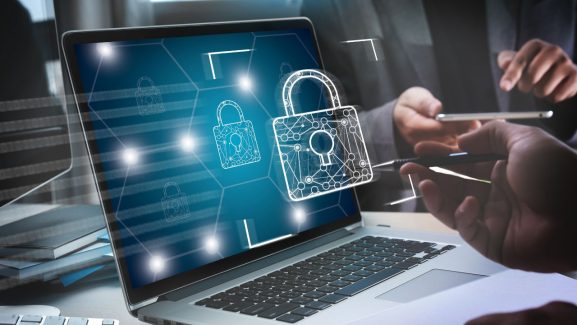Cybersecurity Project Management: How to Manage Projects
Protecting sensitive information and maintaining robust security measures are more critical than ever. Effective cybersecurity project management is essential for organizations looking to safeguard their digital assets against cyber threats. At eStreet Security, we understand that managing cybersecurity projects requires a specialized approach. This article will delve into the intricacies of cybersecurity project management, offering valuable insights and practical steps to ensure the success of your security initiatives.
Understanding Cybersecurity Project Management
Cybersecurity project management is the process of planning, executing, and monitoring projects specifically aimed at improving an organization’s security posture. Unlike traditional project management, cybersecurity projects come with unique challenges, such as rapidly evolving threats, regulatory compliance, and the need for specialized technical knowledge. Effective cybersecurity project management ensures that security initiatives are completed on time, within budget, and to the required standards of quality.
Key Components of Cybersecurity Project Management
- Project Planning
- Scope Definition: Clearly define the project scope, outlining specific objectives, deliverables, and milestones. This helps in setting clear expectations and avoiding scope creep.
- Resource Allocation: Identify the necessary resources, including personnel, technology, and budget. Ensure that the team comprises skilled professionals with expertise in cybersecurity.
- Risk Assessment: Conduct a thorough risk assessment to identify potential threats and vulnerabilities. This step is crucial for prioritizing tasks and allocating resources effectively.
- Project Execution
- Task Management: Break down the project into manageable tasks and assign responsibilities to team members. Use project management tools to track progress and ensure that tasks are completed on time.
- Communication: Maintain clear and consistent communication among team members and stakeholders. Regular updates and meetings help in addressing issues promptly and keeping everyone aligned with the project goals.
- Quality Assurance: Implement quality assurance measures to ensure that the project meets the required standards. Regular testing and reviews help in identifying and mitigating issues early.
- Project Monitoring and Control
- Progress Tracking: Monitor the project’s progress against the planned schedule and budget. Use key performance indicators (KPIs) to measure success and identify areas that need improvement.
- Risk Management: Continuously assess and manage risks throughout the project lifecycle. Update the risk management plan as new threats emerge and existing risks evolve.
- Change Management: Be prepared to handle changes in project scope, schedule, or resources. Implement a change management process to evaluate the impact of changes and ensure that they are communicated effectively.
- Project Closure
- Final Review: Conduct a final review to assess the project’s success and identify lessons learned. Documenting these insights helps in improving future cybersecurity projects.
- Stakeholder Feedback: Gather feedback from stakeholders to understand their satisfaction with the project’s outcomes. This feedback is valuable for refining processes and enhancing future projects.
- Documentation: Ensure that all project documentation is complete and accessible. Proper documentation is essential for compliance and future reference.
Best Practices for Effective Cybersecurity Project Management
- Adopt a Proactive Approach: Anticipate potential challenges and address them before they become critical issues. This proactive stance helps in maintaining project momentum and reducing disruptions.
- Leverage Technology: Use advanced project management tools and cybersecurity solutions to streamline processes and enhance efficiency. Automation can significantly reduce manual workloads and improve accuracy.
- Foster Collaboration: Encourage collaboration among team members and stakeholders. A collaborative environment promotes knowledge sharing and ensures that everyone is working towards a common goal.
- Invest in Training: Provide ongoing training and development opportunities for your team. Staying updated with the latest cybersecurity trends and technologies is essential for maintaining a high level of expertise.
- Maintain Flexibility: Be flexible in your approach and willing to adapt to changing circumstances. Cybersecurity is a dynamic field, and being able to pivot quickly is crucial for success.
- Focus on Compliance: Ensure that your project adheres to relevant regulatory requirements and industry standards. Compliance is not only a legal obligation but also a key factor in building trust with stakeholders.
Challenges in Cybersecurity Project Management
Cybersecurity project management is not without its challenges. Some common issues include:
- Rapidly Evolving Threat Landscape: Cyber threats are constantly evolving, making it difficult to stay ahead of potential risks. Continuous monitoring and updating of security measures are essential.
- Resource Constraints: Limited resources, both in terms of budget and personnel, can hinder the progress of cybersecurity projects. Effective resource management and prioritization are key to overcoming this challenge.
- Complex Regulations: Navigating the complex web of cybersecurity regulations can be challenging. Staying informed about the latest regulatory changes and ensuring compliance is crucial for project success.
- Technical Complexity: Cybersecurity projects often involve highly technical tasks that require specialized knowledge. Ensuring that your team has the necessary expertise is essential for effective project execution.
The Role of Leadership in Cybersecurity Project Management
Strong leadership is vital for the success of any cybersecurity project. Leaders play a crucial role in setting the vision, providing direction, and motivating the team. Key leadership qualities include:
- Visionary Thinking: Leaders should have a clear vision of the project’s goals and the ability to communicate this vision to the team.
- Decisiveness: Making timely and informed decisions is critical for keeping the project on track.
- Empathy: Understanding the needs and concerns of team members and stakeholders helps in building strong relationships and fostering a positive work environment.
- Adaptability: Being able to adapt to changing circumstances and respond effectively to challenges is essential for successful project management.
Case Study: Successful Cybersecurity Project Management
At eStreet Security, we recently completed a major cybersecurity project for a large financial institution. The project involved implementing a comprehensive security framework to protect against advanced cyber threats. Here’s how we applied cybersecurity project management principles to achieve success:
- Thorough Planning: We started with a detailed project plan that outlined the scope, objectives, and deliverables. This helped in setting clear expectations and aligning the team with the project’s goals.
- Effective Execution: Using advanced project management tools, we tracked progress and managed tasks efficiently. Regular communication ensured that everyone was on the same page and any issues were addressed promptly.
- Continuous Monitoring: Throughout the project, we continuously monitored progress and assessed risks. This proactive approach helped us in identifying potential issues early and mitigating them effectively.
- Successful Closure: The project was completed on time and within budget. A final review and stakeholder feedback confirmed that the project met all objectives and delivered significant improvements in the client’s security posture.
Cybersecurity project management is a critical component of any organization’s security strategy. By following the principles and best practices outlined in this article, you can ensure the success of your cybersecurity projects. Remember, effective cybersecurity project management requires a proactive approach, strong leadership, and continuous improvement.
At eStreet Security, we are dedicated to helping organizations manage their cybersecurity projects effectively. Our team of experts is ready to assist you in safeguarding your digital assets and achieving your security goals. Contact us today to learn more about how we can support your cybersecurity initiatives. Let’s work together to build a secure digital future.



